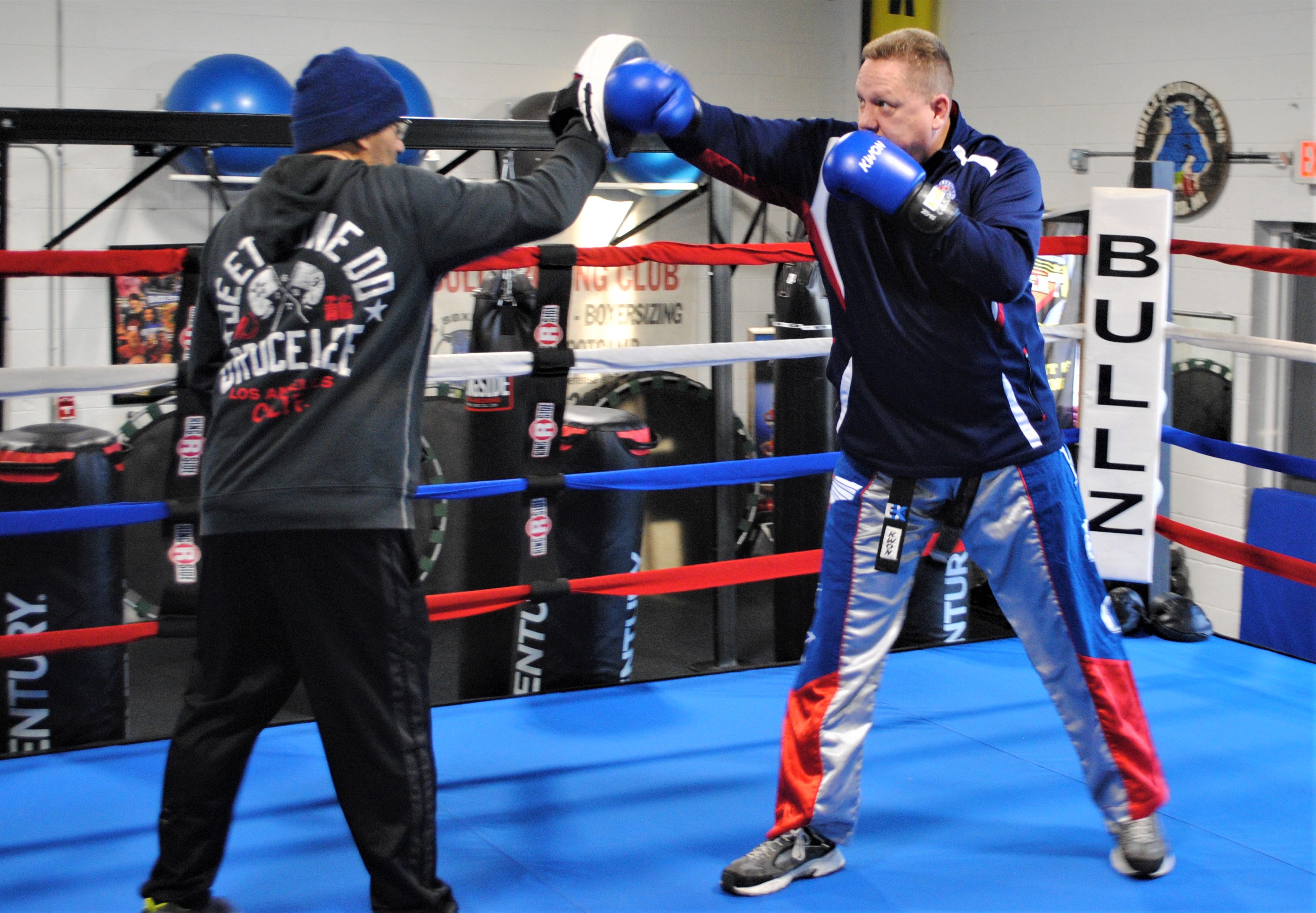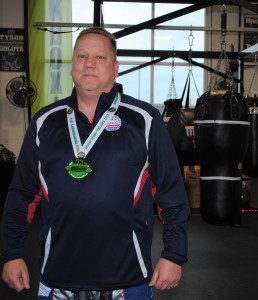
Karate isn’t like most sports. There’s no team: It’s just you and your opponent. There’s nobody else to count on: just your own skill and instinct. Jeff Bryant knows this well.
An eighth-degree black belt in Isshin-ryu and longtime karate instructor, he’s trained 13 of his students to become world champions, most of whom earned their gold medals in sparring. A few weeks ago, Bryant joined them by becoming a world champion in sparring himself.
“Every year I took multiple kids to the championships with me,” he said. “This year I took nobody. So I was able to focus on just me. When my son was competing, I wasn’t competing because I was watching and coaching him. It doesn’t mean that much to me, I’ve won championships before. But this year I didn’t have anybody going, so I could focus on just competing.”
Karate at its heart is about learning to defend yourself. Because of that, Bryant enjoys sparring and teaching his students to do the same because it puts what they learn in karate classes to the test against an opponent their own size. At the World Karate Championship (WKC) tournament, Bryant fought against other men his age and size.
“A lot of people think of competing as being like a game, but I don’t,” he said. “I think by competing, kids learn that it’s really not a game… I think the competition, for me anyway, is testing my skills against somebody my own age and my own weight.”
At the WKC, there are two sparring events. Point sparring consists of stop-and-go matches that determine a winner based on the number of times fair contact is made. When the judges, or referee, observe fair contact, the match is stopped and a point is given.

But Bryant and his students train in continuous sparring, in which competitors fight nonstop for two minutes. The winner is determined by who makes the most fair contact within those two minutes.
Continuous sparring is similar to kickboxing, meaning kicks cannot be airborne. Because of the boxing element to this competition, Bryant wanted to perfect his boxing chops before he stepped in the ring. For that, he went to Wyle “Bull” Abboud of Bullz Boxing.
“Training with a pro boxer like Bull just made sense,” Bryant said. “I already had the kicking skills and I had good hand movement because of karate. But my hand movements were different than boxing, so I had to get the boxing skills down.”
In the end, that boxing training is what helped Bryant take home a gold medal.
“The guys were out there and none of them had good boxing skills . . . So I could just knock down their front hands, (punch) across and get them,” he said. “It didn’t hit me until afterwards that that’s all I did for three months straight (at Bullz), and it came so naturally.”
After this last tournament, Bryant is planning on retiring and doing what he loves – helping other people achieve their potential in karate.
Next year, he plans to train a few of his buddies for the tournament and helping out on the day by being a judge. For years, he owned a karate school in downtown Oxford called Bryant’s Karate and is looking forward to continuing to help karate students in a “grandfather” role.
At the turn of the new year, he’ll be teaching kickboxing at Bullz to help students fight the way he does.
“I got mine, and now it’s time to train them for theirs,” he said.

Leave a Reply